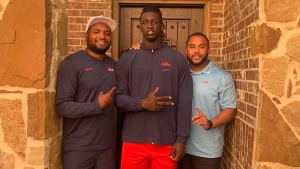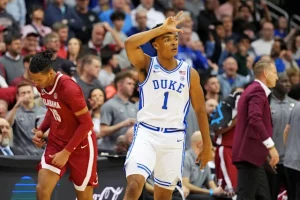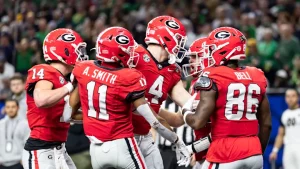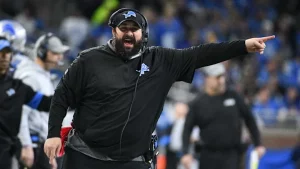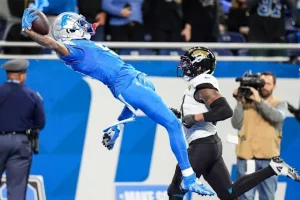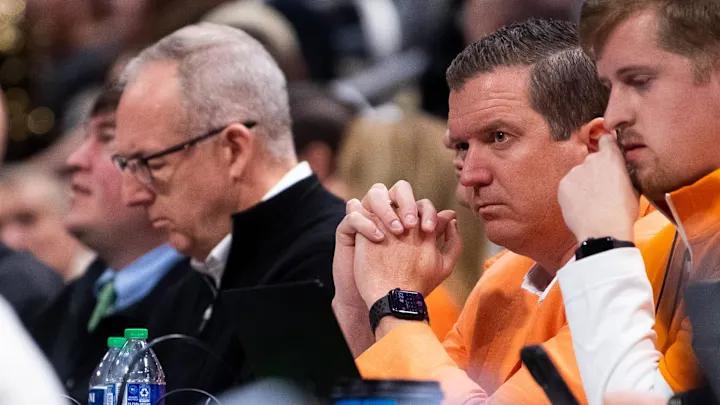
“Time to Go: Why Greg Sankey Should Kick the Tennessee Volunteers Out of the SEC”
The Southeastern Conference (SEC) has long prided itself on tradition, dominance, and excellence in college athletics. Under the leadership of Commissioner Greg Sankey, the league has grown into an economic powerhouse, a national brand, and the clear epicenter of college football. But as the SEC continues to expand its reach and fortify its status, there’s one glaring issue that continues to drag it down—an issue so persistent, dramatic, and unbecoming that it begs a radical solution: it’s time to kick the Tennessee Volunteers out of the SEC.
Yes, you read that right. The University of Tennessee—an original member of the SEC since 1932, a program with proud traditions and a devoted fanbase—should be removed from the conference. Before you scoff or call this clickbait, hear the argument. Because beneath the checkerboard end zones and the smoke from the Power T entrance lies a program that has become a burden, not a benefit, to the modern SEC.
First and foremost, Tennessee has devolved into a circus. Over the past two decades, the football program has seen more turnover than a failing Fortune 500 company. Since 2008, Tennessee has had six full-time head coaches (and that doesn’t include interim stints). The instability at the top has created a toxic atmosphere that extends far beyond Knoxville. What used to be one of the conference’s flagship programs has turned into a never-ending reality show of infighting, recruiting violations, and broken promises.
While other SEC programs are building dynasties or quietly rebuilding with class and focus, Tennessee always seems to be one scandal, one Twitter meltdown, or one internal investigation away from complete collapse. Consider the Jeremy Pruitt era, which ended in NCAA sanctions and a self-imposed bowl ban. The dysfunction wasn’t just embarrassing—it was contagious. It gave the conference a black eye and provided ammunition to critics of the SEC’s supposed “win-at-all-costs” culture.
Greg Sankey has worked tirelessly to elevate the SEC’s reputation nationally, ensuring it’s seen not just as a dominant football conference but also as a leader in academic partnerships, innovation, and athletic integrity. Programs like Alabama, Georgia, and LSU have carried the SEC banner into national prominence on and off the field. Even traditionally weaker programs like Vanderbilt bring academic prestige to the table.
Tennessee, however, has become a public relations liability. From the infamous Lane Kiffin debacle to the Pruitt fallout to more recent NIL controversies, the Volunteers have brought more drama than results. Every time Tennessee enters the national conversation, it’s for the wrong reasons: controversial play calls, questionable recruiting tactics, and player incidents. This isn’t the kind of attention a conference trying to lead the future of college athletics needs.
Let’s talk football. Tennessee claims to be a top-tier program, but the results haven’t matched the bravado. Since their national title in 1998, the Vols have been a consistent underperformer. They’ve failed to win the SEC Championship since 1998, haven’t made a serious College Football Playoff push, and have regularly lost key matchups to rivals like Alabama, Florida, and Georgia.
One 11-win season in 2022 doesn’t erase two decades of irrelevance. In the sport that drives the SEC’s identity, Tennessee has failed to live up to its billing. Unlike Missouri, which at least made it to two SEC Championship games within a few years of joining, or even Ole Miss, which has had flashes of brilliance under Lane Kiffin, Tennessee has consistently failed to capitalize on its supposed advantages.
In a conference that prides itself on competition, sustained mediocrity shouldn’t be tolerated—not when it’s paired with the level of off-field drama Tennessee provides.
While NIL (Name, Image, Likeness) rules are new and the landscape is rapidly evolving, Tennessee has once again positioned itself at the heart of controversy. The Volunteers were early movers in the NIL space, which in theory could be seen as progressive. But their aggressive tactics, questionable transparency, and alignment with collectives like Spyre Sports have drawn raised eyebrows across the college football world.
Their deal with five-star quarterback Nico Iamaleava—reported to be worth up to $8 million—sent shockwaves through the sport. While Tennessee denied wrongdoing, the brazen nature of the contract signaled a willingness to exploit loopholes rather than build consensus or lead responsibly. It felt more like Wall Street speculation than college athletics.
In a league where NIL will inevitably become more regulated, Tennessee’s conduct may force Sankey’s hand. Rather than setting the standard, they’ve once again undermined the system and endangered the SEC’s credibility in the national conversation.
Fan support is the lifeblood of college football, and few fanbases are as passionate as Tennessee’s. But there’s a fine line between passion and toxicity—and Tennessee fans often cross it. From throwing mustard bottles and golf balls onto the field during the 2021 Ole Miss game to organizing online harassment campaigns against players, coaches, and journalists, Tennessee’s fanbase has earned a reputation as one of the most volatile in the nation.
Every program has its extremists, but the problem in Knoxville is scale. This isn’t an isolated issue—it’s embedded in the culture. The pressure fans place on the program is part of what drives the instability, and the vitriol they unleash on anyone who criticizes the team creates an atmosphere of paranoia and dysfunction.
Greg Sankey has spoken about sportsmanship, respect, and fostering a positive fan environment. If he truly believes in that mission, it’s hard to justify Tennessee’s continued inclusion.
Imagine an SEC without Tennessee. The league would lose a storied brand, yes—but it would gain so much more. Removing the Volunteers would send a message that the SEC isn’t beholden to tradition when it’s holding the conference back. It would open the door to new members who are more aligned with the league’s current values.
Programs like Florida State, Clemson, or even North Carolina bring regional value, competitiveness, and—most importantly—modern relevance. They aren’t weighed down by two decades of dysfunction. They haven’t embarrassed the league time and again.
In other words, they’re ready for the future. Tennessee isn’t.
Removing a founding member from the SEC would be controversial, but it’s not unprecedented in the broader landscape of college sports. The Big East was torn apart because it failed to evolve. The Pac-12 disintegrated under the weight of its own arrogance and inaction. The SEC has survived and thrived precisely because it makes bold moves when necessary—adding Texas and Oklahoma, reshaping the scheduling model, and embracing the new era of college football.
Kicking Tennessee out would be the boldest move yet, but also the clearest message possible: win the right way or go home.
No one is denying that Tennessee has history. No one is ignoring the impact of Peyton Manning, Reggie White, or General Neyland. But this isn’t about nostalgia. It’s about the future of the SEC. A future that is stable, competitive, respectable, and professional.
The Tennessee Volunteers have become an anchor on progress. Their dysfunction, controversy, and consistent underachievement weigh down a conference that should be surging forward.
Greg Sankey has proven time and again that he’s willing to make tough calls for the good of the league. Now, he faces his toughest one yet.
If he truly wants the SEC to be the best it can be—on the field, off the field, in perception and in performance—he needs to do what many believe is unthinkable.
Kick Tennessee out of the SEC.
It’s time.

